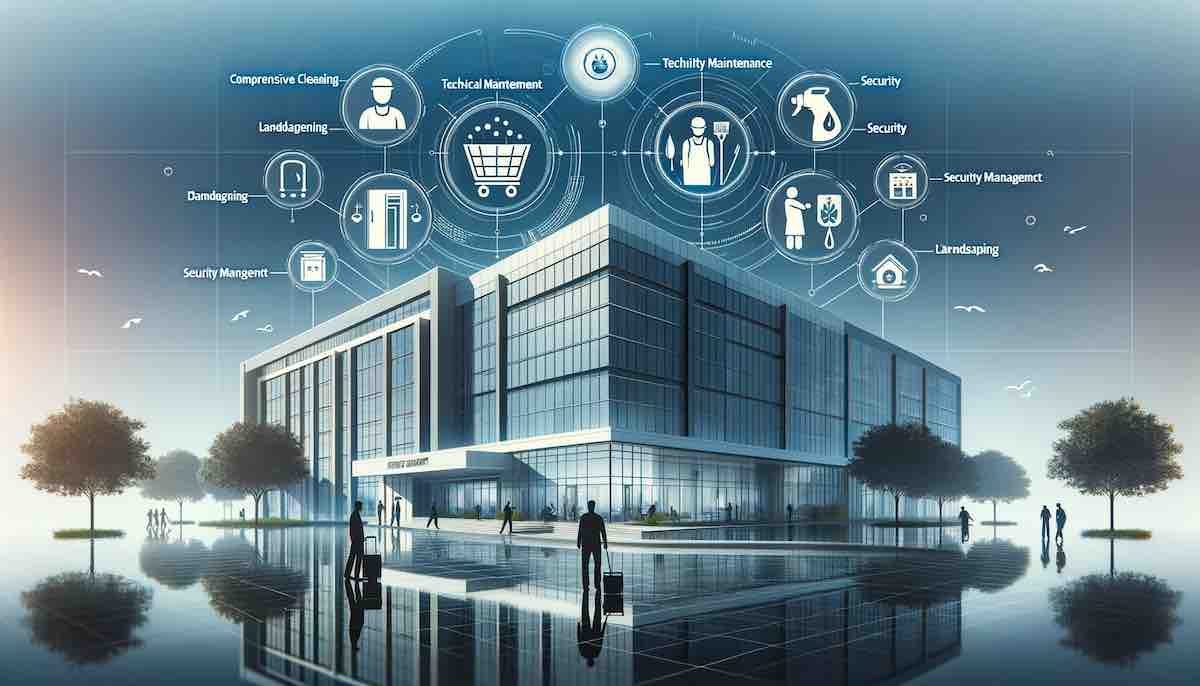Facility management is an essential aspect of any organization, serving as the backbone that ensures all physical spaces operate efficiently and effectively. In today’s complex business environment, organizations are increasingly recognizing the value of well-planned facility management projects. These projects can enhance operational efficiency, improve employee satisfaction, and create a safer work environment. The process of planning facility management projects involves several key steps that require careful consideration and strategic thinking.
To begin with, understanding the organization’s needs and goals is paramount. Facility management projects should align with the broader objectives of the organization, whether these are aimed at improving productivity, reducing costs, or enhancing employee well-being. Conducting a comprehensive needs assessment allows facility managers to identify specific areas for improvement, such as outdated equipment, insufficient space, or inadequate safety measures. This assessment often involves gathering input from various stakeholders, including employees, management, and external experts, to gain a holistic view of the facility’s current state and potential challenges.
Once the needs assessment is complete, the next step is to establish clear project objectives. These objectives should be specific, measurable, achievable, relevant, and time-bound (SMART). By setting these criteria, facility managers can ensure that projects are not only well-defined but also aligned with the organization’s overall strategy. For instance, if an organization’s goal is to reduce operational costs, a facility management project could focus on implementing energy-efficient systems that lower utility bills. Defining clear objectives also aids in securing buy-in from stakeholders, as it provides a tangible framework for evaluating the project’s success.
Budgeting is another critical component of planning facility management projects. Developing a comprehensive budget requires facility managers to consider various costs, including labor, materials, technology, and potential disruptions to ongoing operations. A well-prepared budget helps organizations allocate resources effectively and avoid unexpected expenses down the line. It’s also essential to include a contingency plan in the budget to account for unforeseen circumstances, such as delays in project timelines or increased material costs. Transparent budgeting not only fosters trust among stakeholders but also demonstrates the facility manager’s commitment to responsible financial stewardship.
Risk assessment is integral to the planning phase of facility management projects. Identifying potential risks—such as safety hazards, project delays, or budget overruns—enables facility managers to develop mitigation strategies that can minimize their impact. This proactive approach not only safeguards the project’s success but also enhances the organization’s overall resilience. Engaging with risk management professionals during this phase can provide valuable insights and help create a comprehensive risk management plan. By addressing potential risks upfront, facility managers can ensure that projects remain on track and within budget, ultimately leading to more successful outcomes.
Effective communication is key to successful facility management projects. Facility managers must maintain open lines of communication with all stakeholders throughout the planning process and beyond. This includes regular updates on project progress, addressing concerns, and gathering feedback. Leveraging various communication channels, such as meetings, emails, and project management software, can facilitate collaboration and keep everyone informed. Moreover, fostering a culture of transparency encourages stakeholder engagement and can lead to more successful project outcomes. When stakeholders feel heard and involved, they are more likely to support the project and contribute positively to its success.
After establishing the groundwork through needs assessment, objective setting, budgeting, risk assessment, and communication, facility managers can begin the actual project planning. This phase includes developing a detailed project timeline, identifying key milestones, and assigning responsibilities to team members. Creating a realistic timeline ensures that tasks are completed in a timely manner and allows for proper resource allocation. Milestones serve as checkpoints that can help track progress and maintain momentum throughout the project. Assigning clear responsibilities ensures that team members understand their roles, which fosters accountability and collaboration among the project team.
Furthermore, technology plays a crucial role in modern facility management. Leveraging technology can streamline processes, enhance communication, and improve data analysis. For example, using computerized maintenance management systems (CMMS) can help facility managers track work orders, schedule preventive maintenance, and manage inventory. Additionally, building information modeling (BIM) can provide a digital representation of a facility, allowing for more effective planning and management throughout the project lifecycle. By embracing technological solutions, facility managers can enhance efficiency, reduce errors, and ultimately deliver better results.
Once the project is underway, facility managers must continuously monitor and evaluate its progress. Regular assessments against the established objectives and milestones ensure that the project stays on track. This involves collecting data, analyzing performance metrics, and gathering feedback from stakeholders. By maintaining a focus on performance evaluation, facility managers can identify areas for improvement and make necessary adjustments. This iterative approach fosters a culture of continuous improvement and helps organizations optimize their facility management practices over time.
Finally, post-project evaluation is a vital aspect of facility management planning. Once a project is completed, conducting a thorough evaluation allows facility managers to assess the project’s success against the initial objectives. This evaluation should consider various factors, including budget adherence, timeline accuracy, and stakeholder satisfaction. Additionally, gathering feedback from team members and stakeholders can provide valuable insights for future projects. By analyzing the successes and challenges of each project, facility managers can refine their planning processes and develop best practices that can be applied to future endeavors.
Planning facility management projects is a multifaceted process that requires careful consideration of various factors, including organizational goals, budgeting, risk management, and effective communication. By taking a structured approach and leveraging technology, facility managers can ensure that their projects are not only successful but also contribute positively to the overall efficiency and effectiveness of the organization. As the business landscape continues to evolve, the role of facility management will only become more critical, making it essential for organizations to prioritize well-planned facility management projects that align with their strategic objectives. With a commitment to continuous improvement and a focus on stakeholder engagement, facility managers can play a pivotal role in shaping the future of their organizations.
Contact Info: Gulfektimal




